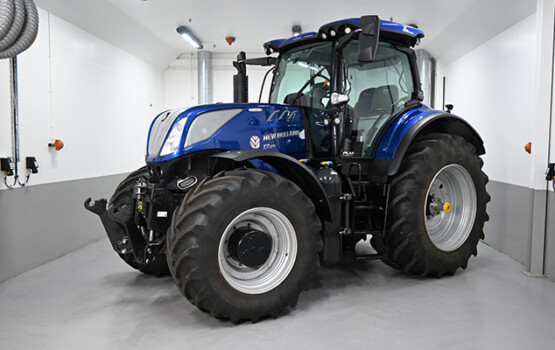Portal for more climate-friendly mobility
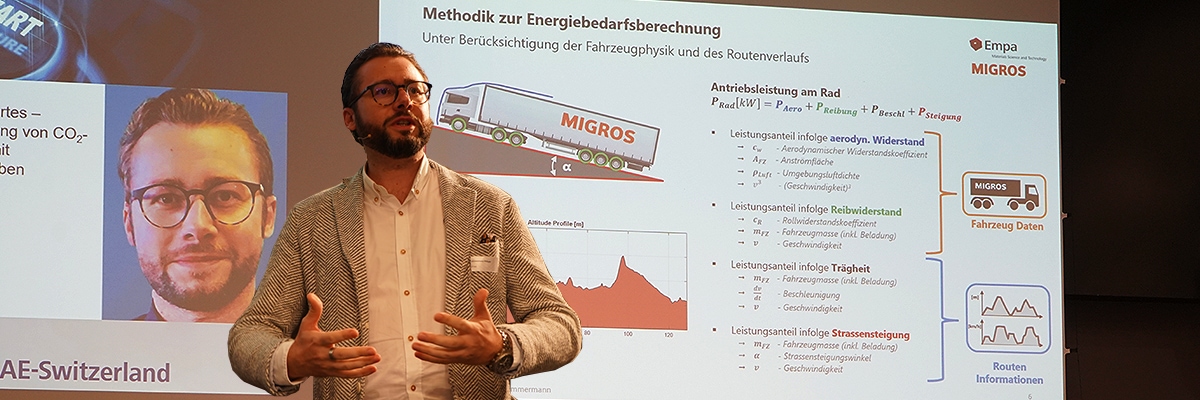
Reducing CO2 via software
In a joint venture with the Swiss retail giant Migros, Empa has developed a tool that optimises the use of various engines in terms of sustainability. Philippe Zimmermann, Project Manager for Automotive Powertrain Technologies at Empa, worked to ensure fairer comparability of the individual technologies using a well-to-wheel approach.
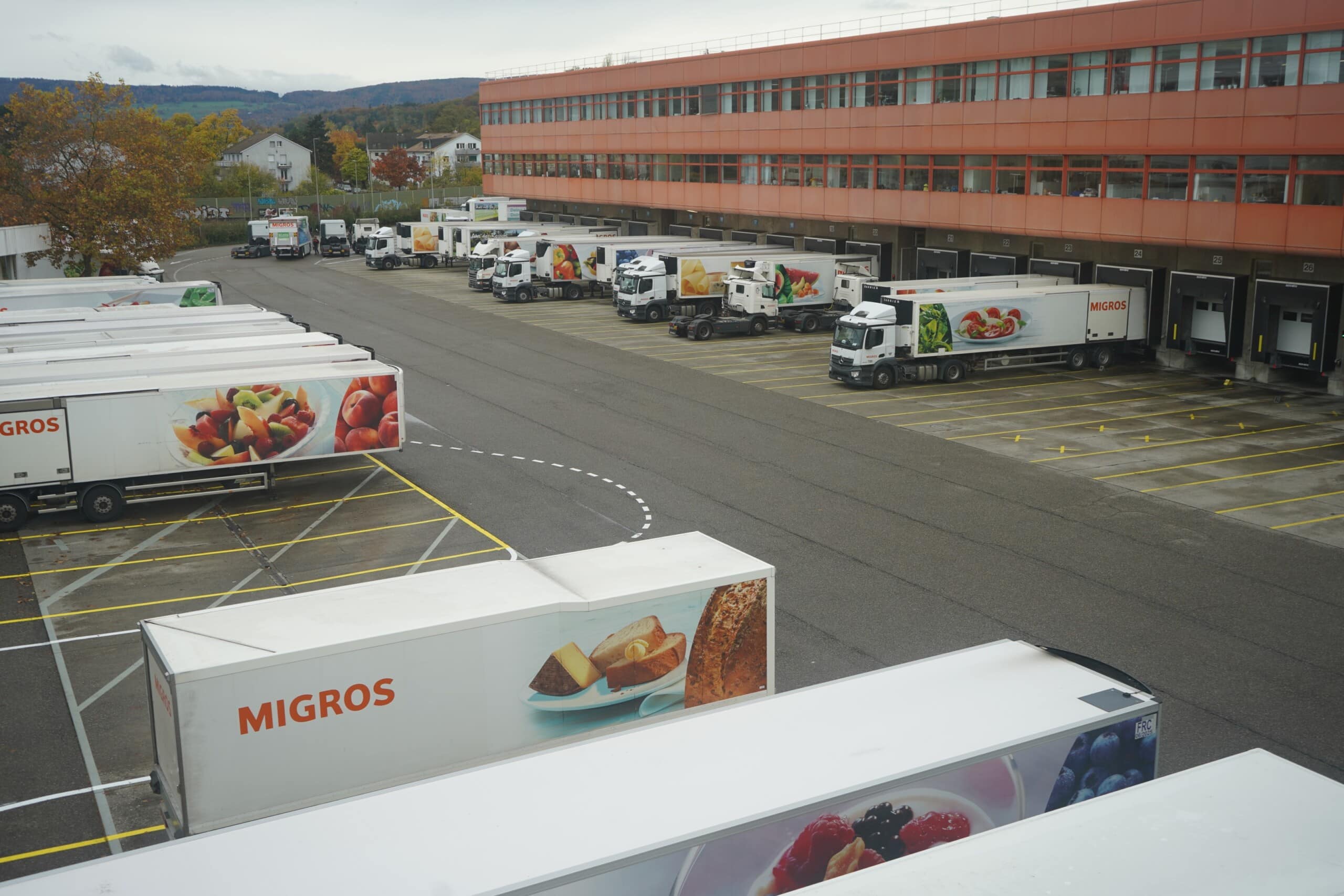 Together with Empa, Migros developed a software tool to calculate the CO2 emissions of trucks before they even start their journey. Source: CNG-Mobility.ch
Together with Empa, Migros developed a software tool to calculate the CO2 emissions of trucks before they even start their journey. Source: CNG-Mobility.ch
For scientist and engineer, Philippe Zimmermann, it is clear that the powertrain technologies for more sustainable heavy goods transport are available, but fleet owners would now have to start implementing and deploying HGVs powered by biogas, LNG/LBG, H2 or electricity. “But there’s no point in simply buying an electric truck for greater sustainability and only then taking care of the infrastructure and charging power,” he explains. And the Empa researcher shows that, depending on the application, one type of engine has more or less advantages in achieving the desired CO2 targets.
This was also the basic idea behind the software tool he developed at Empa together with the Federation of Migros Cooperatives. “It should help to optimise the use of different engine types within a fleet and also be able to predict how many CO2 emissions heavy commercial vehicles with conventional or alternative engines cause during their respective journeys.” This is a new tool at the right time, because according to the Federal Transport Outlook, Swiss freight transport is expected to grow by 31% by 2050 and the increase in delivery vans is expected to be as high as 58%. That is why it is crucial for decarbonisation in the transport sector that something is done to reduce its CO2 emissions today rather than tomorrow.
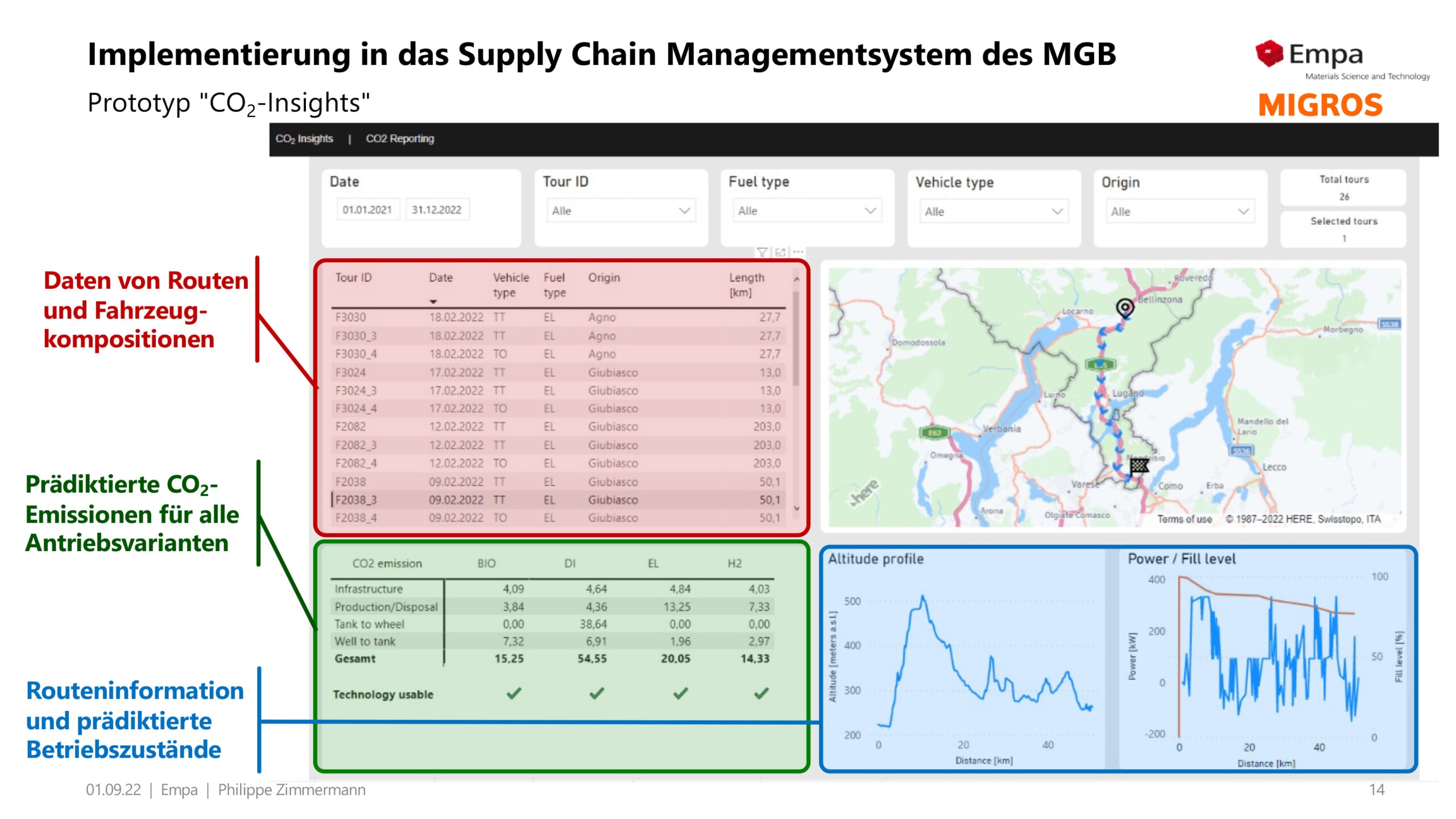 Source: Empa
Source: Empa
Fleet owners and freight forwarders are in a dilemma here. They need to incorporate customer costs, transport performance, route and sustainability goals into their calculations, and still know whether it is worthwhile for their companies to invest in an electric truck or whether it would be better to use a CNG-powered truck with biogas in the tank that can be driven in an almost CO2-neutral way. Zimmermann has created a tool for this and has now also integrated it into Migros’ supply chain management tool. “In doing so, we compare the drive power on the wheel with the chemical or electrical power that needs to be provided,” says Zimmermann. Important for the Empa researcher: he uses the well-to-wheel approach for his predictive tool to improve the comparability of the individual engine types and hence also considers the CO2 emissions in the upstream chain of the individual energy sources and thus also the CO2 intensity of electricity production.
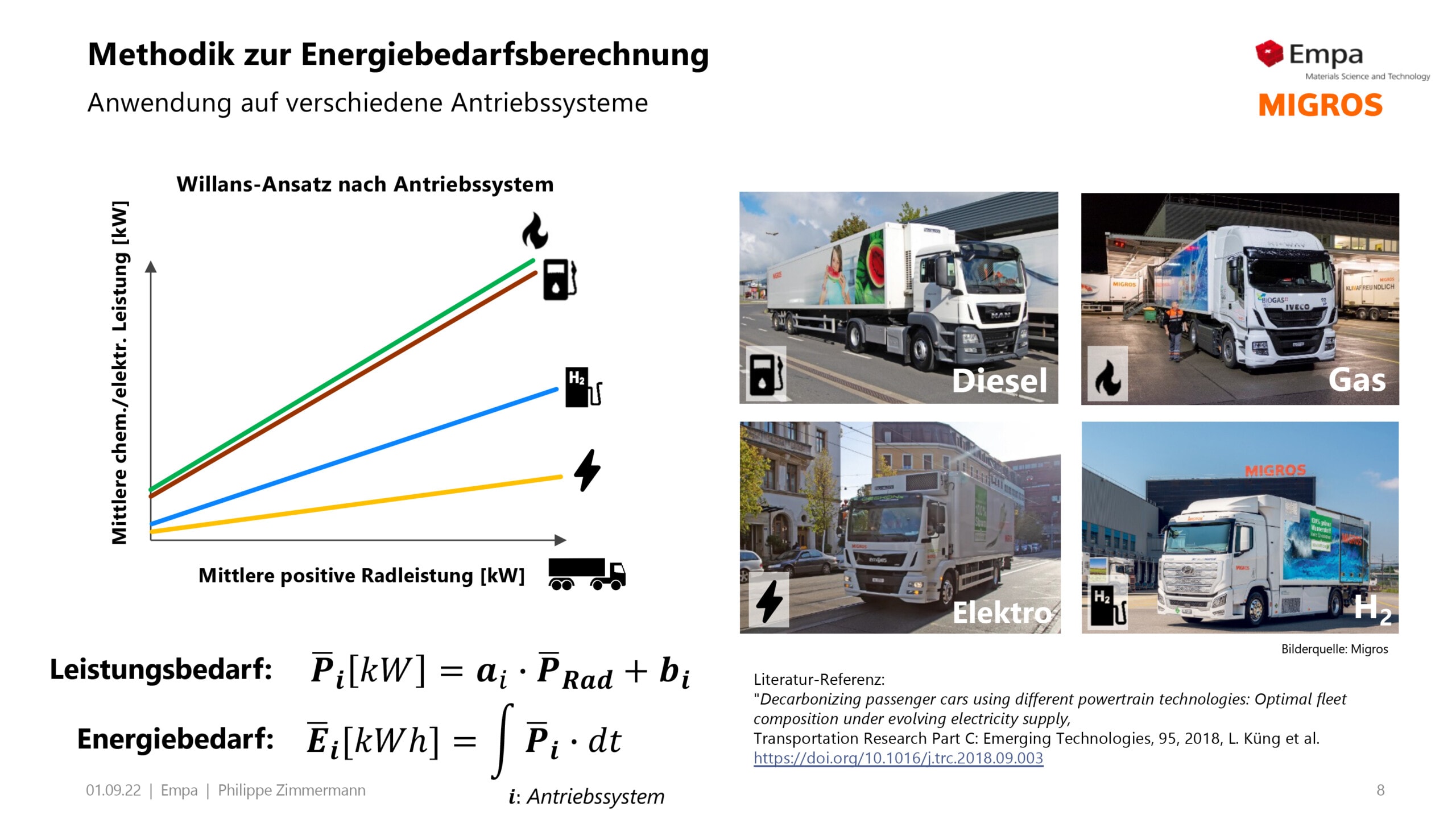 Source: Empa
Source: Empa
“We can also integrate fleets with very different structures into our tool. This digital fleet is then combined with the map and cargo data and we get information about what CO2 emissions are to be expected,” explains the engine specialist. “With a CAN logger and GPS data, we were able to verify our calculations under real conditions and, despite the large number of variables in our system, we only had an average deviation of less than 5%, which is excellent.” For example, Migros can now use data on routes and vehicle compositions to predict exactly which engine type – whether biogas, hydrogen, electricity or even diesel – should be used and how high the CO2 emissions will be.
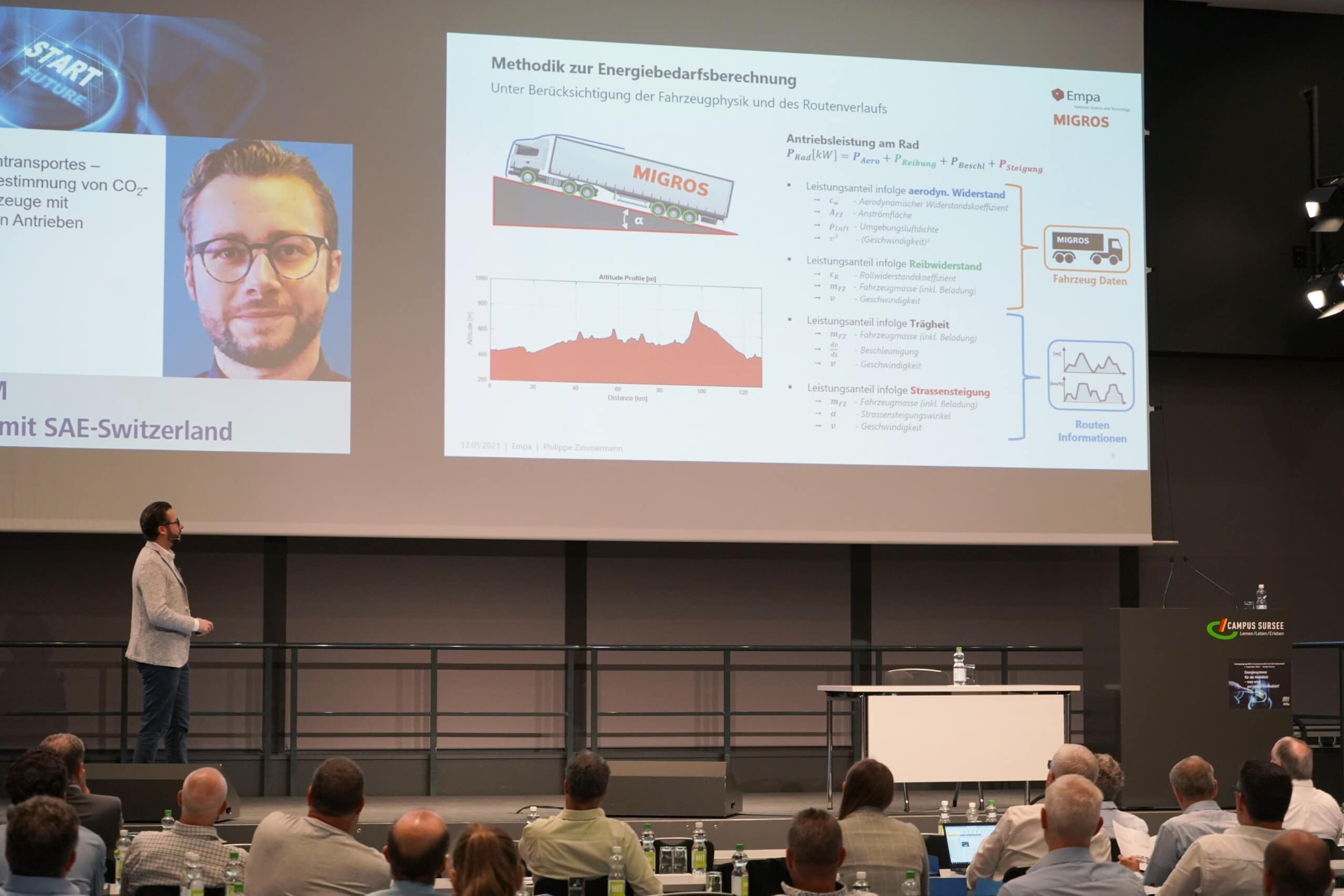 Empa researcher Philippe Zimmermann presents the clever software tool to experts at the conference of the Swiss Study Forum for Mobile Propulsion Technology. Source: CNG-Mobility.ch
Empa researcher Philippe Zimmermann presents the clever software tool to experts at the conference of the Swiss Study Forum for Mobile Propulsion Technology. Source: CNG-Mobility.ch
“Electric trucks are more suitable for static use; in the case of other route profiles and compositions, other engine types make more sense – generalisation is simply not possible,” says Zimmermann. The clever software not only helps Migros to minimise its current CO2emissions, but the digital fleets can also provide information for fleet renewal and additions. In this way, Migros receives valuable information on which alternative engine types should be used in the future and uses software to reduce CO2 emissions. (jas, 6 October 2022)
More details about the tool in the presentation by Philippe Zimmermann
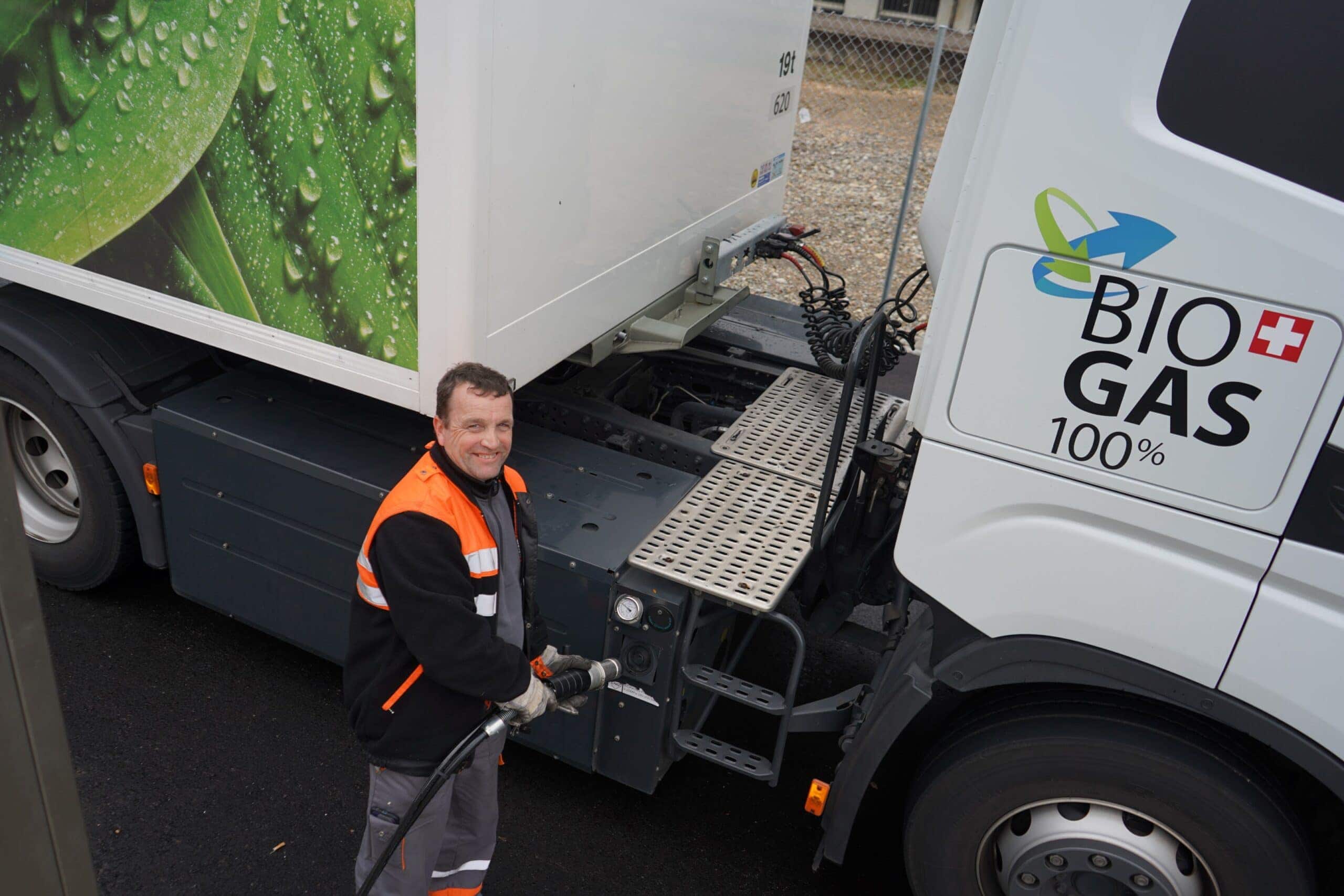 Already today, several CNG trucks are on the road for Migros Basel and Migros Ostschweiz in an almost CO2-neutral manner thanks to biogas in the tank. Source: CNG-Mobility.ch
Already today, several CNG trucks are on the road for Migros Basel and Migros Ostschweiz in an almost CO2-neutral manner thanks to biogas in the tank. Source: CNG-Mobility.ch
You might also be interested in
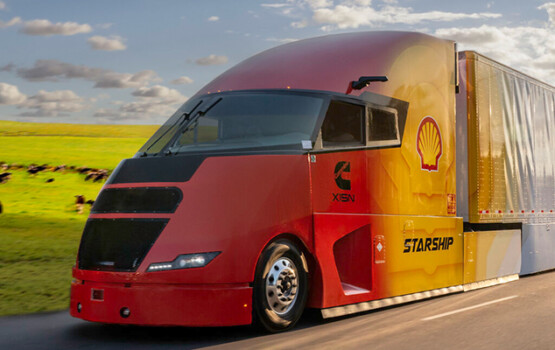
Shell Starship on record hunt
